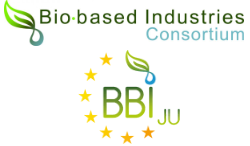Author: Katrin Weinhandl, acib
The climate crisis is omnipresent and more and more people are trying to make their consumer behaviour more sustainable. But a product is not always as “green” as the associated marketing suggests. When companies pretend that their products are sustainable, this is called “greenwashing”.
When it comes to plastic waste, many companies have also committed to significantly reducing their plastic consumption, but how effectively are they actually doing it? Strategies range from using recycled or recyclable plastic to making material changes that result in less plastic production (e.g., thinner bottles, shorter caps).
Despite all this, plastic is one of the unbeatable materials in industry due to its properties, so despite all sustainability efforts, plastic production is expected to increase significantly by 2050. However, “greenwashing” leads to numerous misconceptions among consumers:
- “Bio-based plastic is environmentally friendly“: this is partially true – production is more environmentally friendly because no fossil resources are used as raw materials. However, not all bio-based plastics are biodegradable, so they still end up as plastic waste in incinerators unless more effective degradation methods are developed.
- “The clothes were made from recycled plastic“: Good approach – However, it is still difficult to process mixed plastic waste, so it is more likely that the product was only partially made from recycled plastic. The main problem with plastic-containing clothing anyway is much more the microplastics that end up in wastewater as abrasion during washing – whether or not it’s recycled plastic.
- “Blended fabrics, e.g. polyester and cotton, are more environmentally friendly“: Not true – less plastic was needed for the garment overall, but the product cannot be recycled at the end of its life, as fabric blends are still a major challenge for industrial recycling.
Plastic is currently recycled by mechanical or chemical processes. However, the chemical processes in particular are very energy-intensive as they operate under high temperature.
For many of these issues, enzymes could be a valuable solution. Enzymes work very effectively even at lower temperatures and, most importantly, very selectively with respect to their substrate. They are also able to break down mixtures of substances and can help filter out microplastics in special biofilters.
ENZYCLE is working on these solutions and is looking for potential enzyme candidates and microbial consortia that are particularly suitable for industrial applications. There is still a long way to go before enzymatic recycling methods are successful and economical on a large scale. Nevertheless, the numerous research teams around the world, including ENZYCLE, are getting closer and closer to a viable solution.
It’s important for consumers to keep their eyes open and not be fooled by marketing traps. And the best countermeasures in the fight against plastic waste are still the reduction of plastic products as well as proper waste separation, which facilitates recycling.




